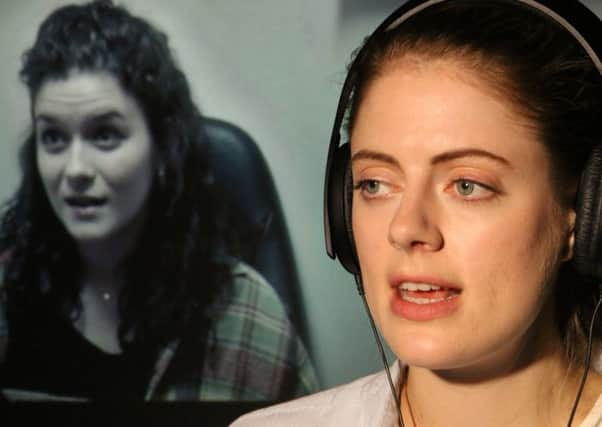Theatre review: Jane Doe


Assembly George Square Studios (Venue 17)
****
She tells us that the words we’re about to see, hear and read have been taken from the transcripts of high-profile rape cases and other real-life sources. And if we want to leave at any point we can. OK?
Despite the sometimes-tough subject matter, it is indeed OK: this is a sensitively handled conversational piece that treats its audience with care while also placing rape in its wider social and cultural context. Writer-director Eleanor Bishop juxtaposes a variety of women’s experiences and thoughts on a range of subjects – from objectification to sexuality to the media – with the court case transcripts, which audience members help read, and gathered social media content, all of which we can (through our smart phones) directly respond to. This leads to a heated on-screen debate between a number of people in a way that feels refreshingly pragmatic, particularly when so many issue-led plays are a one-way conversation.
Advertisement
Hide AdAdvertisement
Hide AdIn the same way Jane Doe becomes a placeholder name for the women who have been attacked, McCracken becomes a single voice for those who are interviewed – the message appearing to be that we are more powerful when we speak as one.
The company is keen to avoid bringing victims/survivors unwanted attention, but at times it can feel like their voices are being omitted from their own stories as a result. However, the piece is less about highlighting specific cases than trying to collectively work out why rape happens, and taking shared responsibility – whether we’re men or women, or have direct experience of it or not – for making it stop.
Until 28 August. Today 3pm.